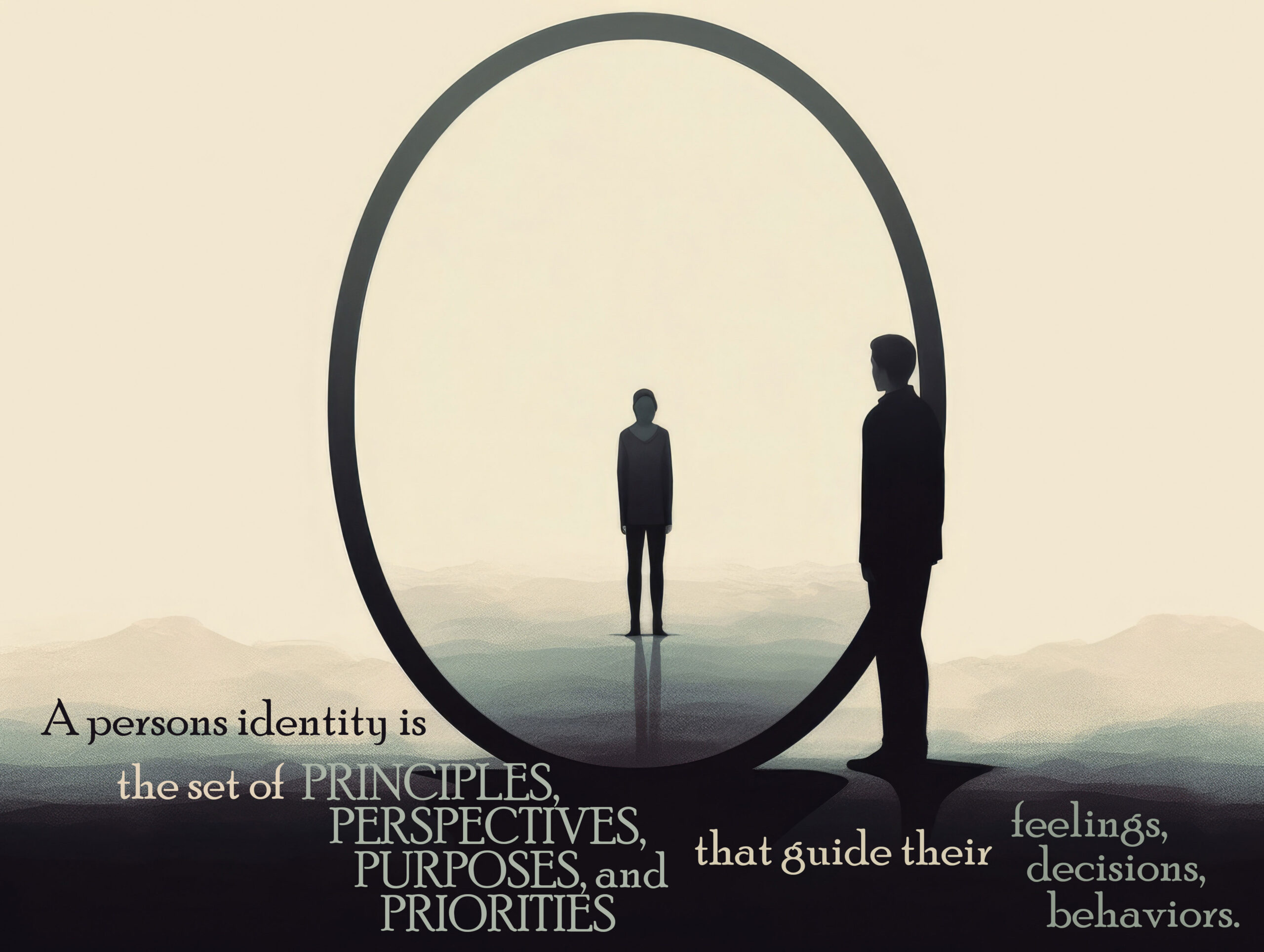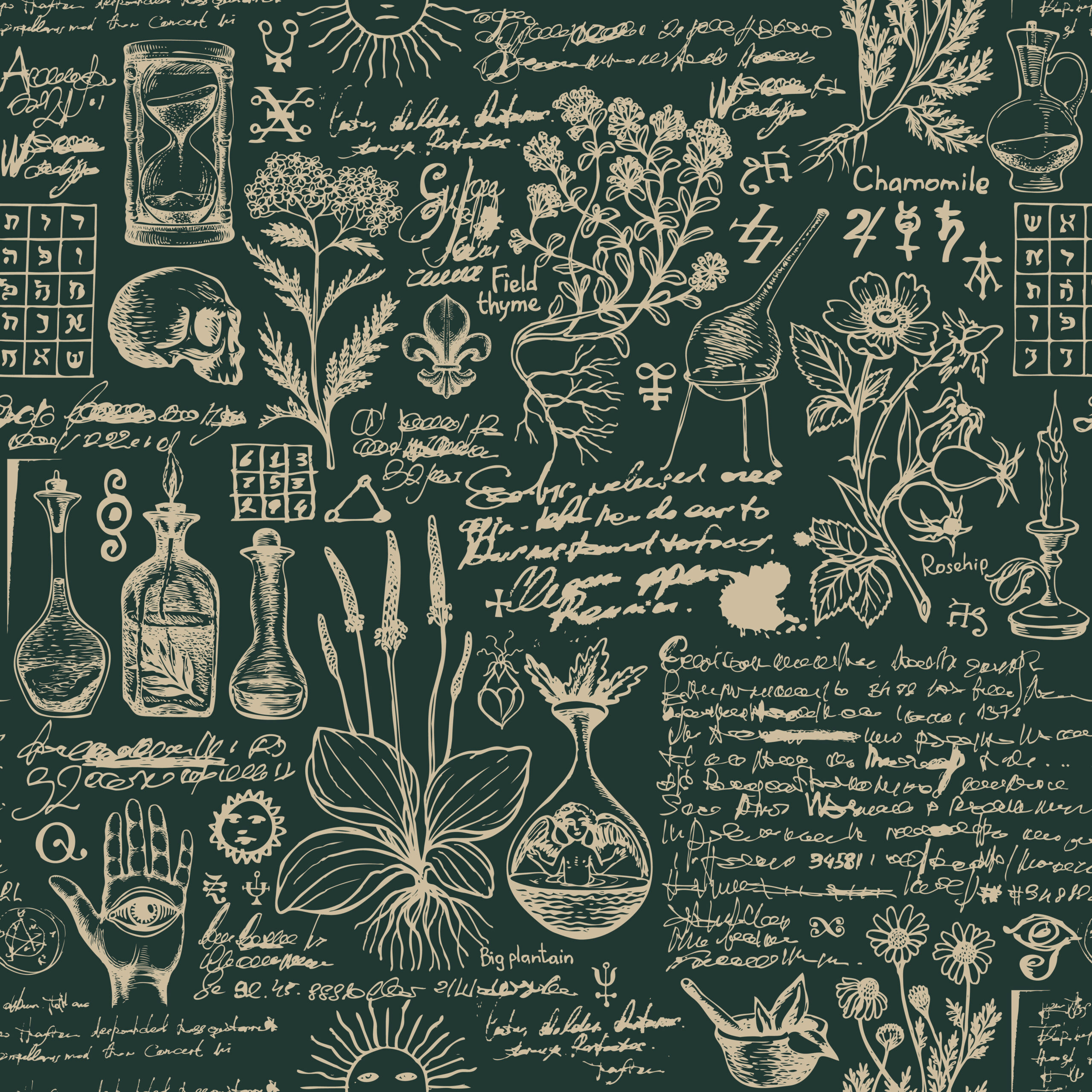Identity
Conversation #3
While preparing for a recent presentation, I planned to include an introduction about the importance of identity. From experience in giving many presentations, I knew that the success or failure of a presentation can hinge on the success of the introduction. For this presentation, the most important question that I could answer in my introduction was why was learning about Redeeming Identity was important? (See the presentation: Identity Discussion.)
This is the question that I would like to address in the third entry of the Question and Conversation series. Why should we care about identity?
The Unseen Cause
The occurrence of someone not feeling well and needing care has been a constant throughout history. There have always been children with a fever. People have problems with their digestive system after eating something questionable. A cut from a mishandled knife needs to be treated. Each of these situations could have described something happening in a home today, a hundred years ago, or a thousand years ago.
The difference between now and long ago is how the different situations were treated. Fever, or an unusually high temperature, were considered sinister signs of the unnatural or supernatural. The Romans had at least three temples dedicated to worshipping a god of fever, where they would leave amulets hoping to placate the deities that had made them sick. In the middle ages, a fever may be treated with taking an elixir, an exorcism, or by bloodletting, a practice of draining some blood to balance the internal fluids.
Even back in ancient times, medical practitioners understood that the cause of many ailments originated from inside of the body. For many centuries, the common view was that the body contained four basic substances or “humors” which needed to be kept in balance. When someone was sick it was because there was an imbalance in one or more of these, so treatments, such as bloodletting, were used to restore the balance and return health to the body.
The challenge was that the medical professionals of the day had an unseen cause that they could not specifically identify or cure. They did not have a good understanding of the way that God created the body and how bacteria and viruses work from inside. Instead of medicine to treat the cause, they used natural remedies that did everything from providing some help to causing more injury.
God’s Focus
Much like medical practitioners of ancient times, people in the historic church had an understanding that what God was mostly concerned with was not physical, but a spiritual or internal issue. The Bible clearly indicated that God saw that the issue was with people’s hearts.
“The heart is deceitful above all things, and desperately sick; who can understand it?” Jeremiah 17:9
“But what comes out of the mouth proceeds from the heart, and this defiles a person. For out of the heart come evil thoughts, murder, adultery, sexual immorality, theft, false witness, slander. These are what defile a person.” Matthew 15:18-20
We see the actions of the person, but God recognizes that these are just the symptoms or fruit of a heart that is “desperately sick.” If the heart is sick, then what will come from it is also sick.
Although God recognizes what we do, these are not His focus. Even the historic church recognized that God’s focus was on our heart, what is inside of us that determines what we think, feel and do. What we do is just the fruit or outpouring of what is in the heart. If God wants to see us do what He created us to do, then the heart needs to change.
The Meaning of Heart
Throughout this, we have been using the term that is frequently used in the Bible, the heart. God’s focus is on the status of our heart and changing our heart. The modern problem is that we do not think of the heart in the same way as the original authors. To many of us in modern times, the heart is the figurative source of our emotions. To the original authors, the heart was so much more than our emotions. The heart was considered the source of volition, the origin of everything that we do.
The modern word that best represents the intention of the original authors is identity.
A person’s identity is the set of principles, perspectives, purposes, and priorities that are held, consciously or unconsciously, that guide their feelings, decisions, and behaviors.
Instead, as stated in the Bible, what we do are results or indicators of who we are. (For more information about the definition of identity, view the article: Identity Conversations #1.)
One of the main reasons that we are calling for a focus on identity is to return to and make clear what God is focused on. The focus of God is on more than our emotions. His focus is on who we are at our core, what defines who we are, or our identity.

Transforming Fruit
This is not calling for a change of focus, but a return to God’s original intention to focus on who we are at our core. Since what is sick or corrupted is our heart, our identity, then that is what needs to be addressed. When the identity is transformed to what God desires, then our actions will also align to what he designed.
“So, every healthy tree bears good fruit, but the diseased tree bears bad fruit. A healthy tree cannot bear bad fruit, nor can a diseased tree bear good fruit…Thus you will recognize them by their fruits.” Matthew 7:17-18, 20
“Either make the tree good and its fruit good, or make the tree bad and its fruit bad, for the tree is known by its fruit.” Matthew 12:33
The actions that we take are indicators of what is on the inside. If we want to demonstrate the actions that God desires, we first need to have the right identity.
The challenge with most teaching about this transformation is that the focus switches from how we transform our heart to how we change our behavior. It typically goes something like this, “Now since you know that you have been saved, here is what you are supposed to do.” It does not actually work on transforming the heart, but tries to get the actions to look like they should, as if the heart is healthy. Using the metaphor from the Bible, it is like trying to put healthy fruit on a sick tree to make it look healthy.
We are calling for a focus on identity because that is what God has called us to. We are not called to change our behaviors in a vain attempt to put on a facade of having a healthy identity. Jesus rebuked the Pharisees for teaching and leading this way in Matthew 23. We are not supposed to be cups that look clean on the outside, but are still corrupted on the inside. God’s call is to a transformed identity, so that the fruit of our lives is pleasing to God as indicators of a heart that is changed.
Transforming Identity
In our backyard, we have a few rose bushes. I recently noticed that there were some yellow leaves with spots on one of bushes. In researching the issue, I found that this was because a fungus was attacking the bush and untreated would keep the bush from producing roses.
To address the issue, the affected leaves and branches on the bush needed to be removed. The dirt around the bush needed cleaned from affected leaves. Finally, the remaining bush needed to be sprayed with anti-fungal spray to keep the fungus from spreading to the rest. It needs to be continually watched and repeated, if any sign of it returns.
To have the rose bush produce beautiful flowers, the rose bush needed to be made healthy. In the same way, for us to live lives that glorify God, in the way that we were created, our identity needs to be transformed. Our corrupted principles need to be replaced with new principles that represent God’s truth. Instead of interpreting our circumstance from a corrupted perspective, we take on God’s point of view. We are actively fulfilling God’s purpose for us, by putting aside our own purposes. Our ultimate priority is change that glorifies God through who we are and what we do.
This is not a passive process of waiting for God to transform who we are. We are active participants in the work that God wants to do within us. The Bible describes it as putting aside the old self and putting on the new self.
“…put off your old self, which belongs to your former manner of life and is corrupt through deceitful desires, and to be renewed in the spirit of your minds, and to put on the new self, created after the likeness of God in true righteousness and holiness.” Ephesians 4:22-24
In Redeeming Identity, we have described this process as submitting, sacrificing, and substituting. It starts with submitting to God’s plan to transform our identity. We then have to sacrifice, or put off, an aspect of our old identity, a principle, perspective, purpose, of priority. Then we put on, or substitute, the new identity that God has provided.
As you would expect, this is not a one-time event. God does not just transform your entire identity in one moment, but this is a progressive transformation into who He has created you to be. The active identity from which you currently live still includes aspects of your corrupted identity, but you are not the person you previously were. God wants to use the redeeming process to transform your active identity, the one you are currently living from, into the aspirational or true identity, the one that God created for and has already promised you, in eternity.

Transformation in Action
“Doing” is important, because we are called to live out of our new identity. The importance of identity is a shift from directly changing our actions to changing what really matters, our identity. As our identity is transformed into God’s design, our activity will also align to God’s plan.
A good place to start this transformation is to know God. We were created to be image-bearers of God. Our identity was designed to reflect who God is.
“Therefore be imitators of God, as beloved children.” Ephesians 5:1
For us to reflect God’s identity, we need to know who He is. As we learn God’s principles, we will come to realize differences between our principles and His. This realization will also occur with our perspectives, purposes, and priorities. Recognizing differences between God’s and our identity is how He will start us through the process of redeeming our identity.
Redeeming Identity exists to support individuals on the journey of transforming identity. You will find resources on our website to encourage and equip you as you discover who God is, as you learn who you were created to be. Please let us know if there is anything that we can do to support you or have any questions.
This is the third entry in the Conversations and Question series. In each entry, we share questions or comments shared by people either on the website or during meetings and provide expanded responses. Although we respond to every email and comment, these articles will include information beyond what could be shared in an email or during a brief discussion. As always, the hope is that this will be another part of the continuing conversation regarding the process of discovering our identity. Please share your comments or questions at the end of the article to continue to conversation.
Your Response
If you would like to know more about receiving the new identity that God offers you, please take some time to hear about God’s Good News.

Time for Reflection
Read Matthew 7:17-20
Reflect on the idea that God does not inspect the fruit of our lives in same way that people do. God inspects the source of our life, our identity.
The fruit that we produce is just an outcome or indicator of what is true within our identity. What is God showing you about your identity? What transformations does God want to make in who you are?
What is keeping you from participating in the redeeming identity process?
God’s desire for you is to become who He designed you to be, so you can glorify Him by bearing good fruit. Take some time to talk to God about where you are in this process.
Join us in sharing!
If God has used this article to encourage or challenge you, please take some time to share it with others by sharing it on your facebook or other social media site. Adding comments to the post also let’s us know what you are thinking about what God is teaching you. Also, please let us know how we can continue to help you discover who God is and who He created to you be.




0 Comments